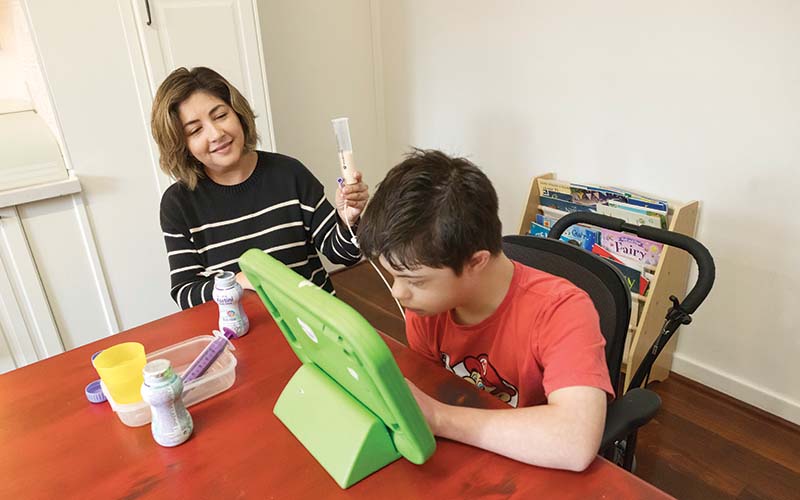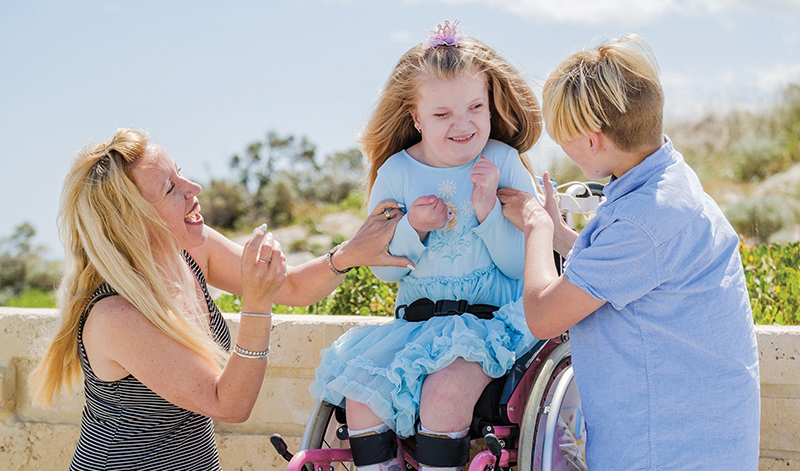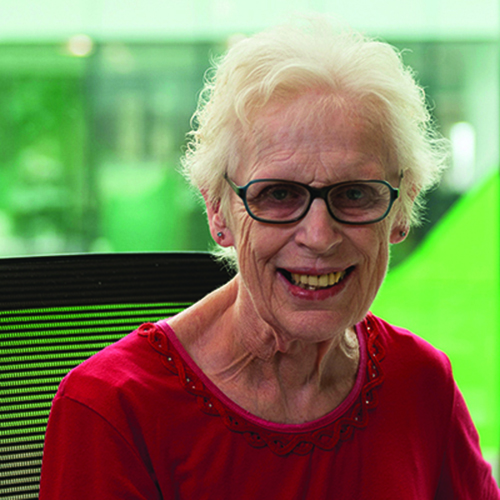Search

For thousands of children around Australia with intellectual and other disabilities, the process of eating can be traumatic, posing challenges that veer from uncomfortable to life threatening.

For thousands of WA children living with undiagnosed diseases, it’s hope.

The Kids Research Institute Australia disability researcher, Associate Professor Helen Leonard, played an important role in the identification of the differences that define CDD, thanks to her extensive experience researching Rett syndrome and running an Australian online database tracking Rett cases.

The Walkern Katatdjin (Rainbow Knowledge) project has produced a suite of resources to help services become more inclusive.
Research
The application of environmental health assessment strategies to detect Streptococcus pyogenes in Kimberley school classroomsChildren spend almost one-third of their waking hours at school. Streptococcus pyogenes (Strep A) is a common childhood bacterial infection that can progress to causing serious disease. We aimed to detect Strep A in classrooms by using environmental settle plates and swabbing of high-touch surfaces in two remote schools in the Kimberley, Western Australia.
Research
The Future Healthy Countdown 2030 consensus statement: core policy actions and measures to achieve improvements in the health and wellbeing of children, young people and future generationsThis consensus statement recommends eight high-level trackable policy actions most likely to significantly improve health and wellbeing for children and young people by 2030. These policy actions include an overarching policy action and span seven interconnected domains that need to be adequately resourced for every young person to thrive: Material basics; Valued, loved and safe; Positive sense of identity and culture; Learning and employment pathways; Healthy; Participating; and Environments and sustainable futures.
Research
A systematic review of the thoughts and feelings that are associated with suicidal behaviours in Aboriginal and Torres Strait Islander young peoplesAboriginal and Torres Strait Islander Peoples are custodians of one of the oldest living societies; however, the continued impact of colonisation has led to profound trauma and loss which has spanned generations.
Research
Estimating the impact of imported malaria on local transmission in a near elimination setting: a case study from BhutanBhutan has achieved a substantial reduction in both malaria morbidity and mortality over the last two decades and is aiming for malaria elimination certification in 2025. However, a significant percentage of malaria cases in Bhutan are imported (acquired in another country). The aim of the study was to understand how importation drives local malaria transmission in Bhutan.
Research
The Impact of Obesity on Influenza Vaccine Immunogenicity and Antibody Transfer to the Infant During PregnancyInfluenza vaccination is recommended for pregnant women, offering the dual benefit of protecting pregnant women and their newborn infants against influenza. This study aimed to investigate the impact of body mass index (BMI) on influenza vaccine responses in pregnant women and their newborns.
Research
The role of parenting- and employment-related variables on fathers' involvement in their children's educationParent involvement strongly correlates with children's educational attainment. Sociocultural shifts in parenting roles and shared responsibilities have driven an increase in the need for involvement of fathers in activities to support their children's educational development. Several factors are thought to influence father involvement in children's education; however, the most salient factors remain unclear.
